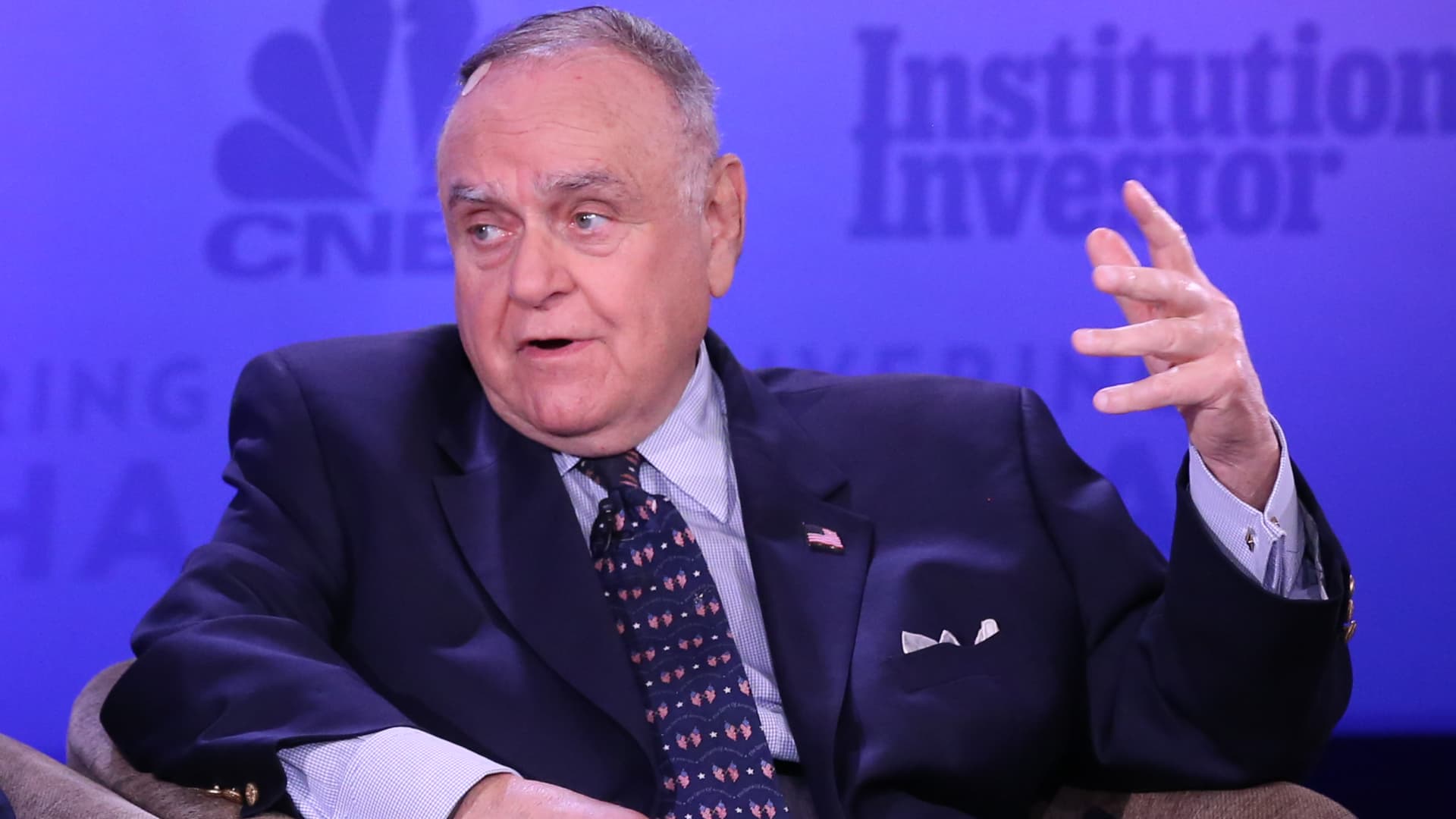ARTICLE AD BOX
Skyscrapers on the skyline in the financial district of Frankfurt, Germany, on Monday, Nov. 4, 2024. Germany Finance Minister Christian Lindner, leader of the free market-leaning FDP, issued a position paper on Friday calling for tax cuts and a slower approach to emissions reductions.
Bloomberg | Bloomberg | Getty Images
Germany's election result delivered a jolt of optimism to lackluster markets at the start of the week, though the question of whether the new government can deliver promised higher public spending and reboot the economy continues to hang over the country's beleaguered major industries.
Frankfurt's DAX index gained 0.6% Monday, outpacing a flat U.K. FTSE 100 and 0.78% loss for France's CAC 40, while the euro nudged higher against the U.S. dollar and British pound and German borrowing costs were little-changed.
Sunday's vote delivered a victory for the conservative alliance of the Christian Democratic Union (CDU) and Christian Social Union (CSU). That has set up CDU-CSU candidate Friedrich Merz — a center-right, pro-business politician who serves on the boards of EY Germany and the Deutsche Börse — as near-certain to take over as the next chancellor.
Some uncertainty remains however, with a period of coalition talks ahead and a future in which support of smaller parties will be needed to enact promised policies including reform of Germany's contentious "debt brake" rule.

"I think what the market is seeing now is some stability, at least we know who won the election, we know who's claiming it, and then we know who the coalition is going to be based around from here. So I think the market is taking that as a huge positive," Michael Field, chief equity strategist at Morningstar, told CNBC's "Squawk Box Europe" on Monday.
A worse market outcome could have seen the CDU fall short of the level needed to start forming a coalition, triggering a "messy few months of parties scrambling around and no clarity for business," Field said.
The result is positive for the German economy because a two-party "grand coalition" between the conservatives and the Social Democrats (SPD) now looks like a likely outcome, a situation that would expedite decision-making, analysts at Danske Bank said in a note.
Whether it is a two- or three-party coalition that brings in a smaller player such as the Greens — with Merz having ruled out governing alongside the second-place far-right AfD party — the main parties are aligned on policies including bringing down energy prices and investing more in infrastructure, Morningstar's Field told CNBC, which would see "positives coming through for businesses down the line."
According to Field, that could deliver a boost to sectors including the German autos industry, the once-mighty sector which has been battered by electric vehicle competition from China, weak domestic demand, U.S. tariff threats and regulation.
"The sector is so badly beaten up... our stance is that it doesn't take a lot to turn that momentum and shift that slightly in the positive direction, and a new government in place with a mandate to really take down energy prices, trying to improve competitiveness in the economy, any little bit of give there could really give that sector the booster it badly needs at this stage," Field said.
The largely-overlooked utilities sector is another area that may benefit if the government removes policies such as energy price caps and consumer energy taxes which have limited market returns, Field continued.
Siemens Energy Chairman Joe Kaeser told CNBC on Monday that the government needed a long-term agenda to restructure Germany over the next five years. Such an agenda would need to focus on the economy, infrastructure, energy, education, innovation, restructuring the pension system and "regaining government control and government reforms."
Arnd Franz, CEO of auto parts maker Mahle, meanwhile told CNBC the manufacturing sector needed urgent action on taxes, energy costs and flexibility of the labor market.

Citi analysts stressed in a Monday note that "the policy landscape post-election will depend on the shape of the coalition government yet to be formed."
Highlighting the market impact that smaller parties could have, they said that the involvement of the Greens in a coalition would be a positive for building firms which make heating and cooling equipment, as this would reduce the likelihood of abolishing subsidies and mandates for heat pump retrofits.
Citi analysts also said they saw "limited [medium-term] risk to the German onshore wind auction regime," citing the CDU platform that it is time to "develop grids, storage facilities and all renewables."
"This would appear to imply no major steps aimed at hindering the development of wind power," according to Citi, supporting stocks such as Nordex and Vestas, they wrote.
However, key questions remaining for markets include whether the government will be able to return the economy to growth, rebuild weak business and consumer sentiment, and increase fiscal spending through removing rules enshrined in the constitution limiting how much debt the government can take on. The latter point has moved into broader focus in recent weeks as European nations discuss upping their defense spending in response to the Russia-Ukraine war and tensions with the U.S.
"The key upshot from a market perspective... is the fact that the three establishment parties (CDU/CSU, SPD and the Greens) do not lay claim to the two-thirds of seats needed to change the constitution," Rabobank's economics research team said Monday.
Passing reform therefore has no clear pathway, with the AfD opposing debt brake removal, and the left-wing Die Linke being open to it but at odds with the SPD, and opposed to arming Ukraine.
"The bottom line, then, is that yesterday's electoral result has not resulted in a clear path to the constitution being changed to allow for a step change in government spending," Rabobank said.
They added that the German and regional growth outlook thus remains "decidedly gloomy in the absence of a dramatic fiscal shift."











 English (US)
English (US)